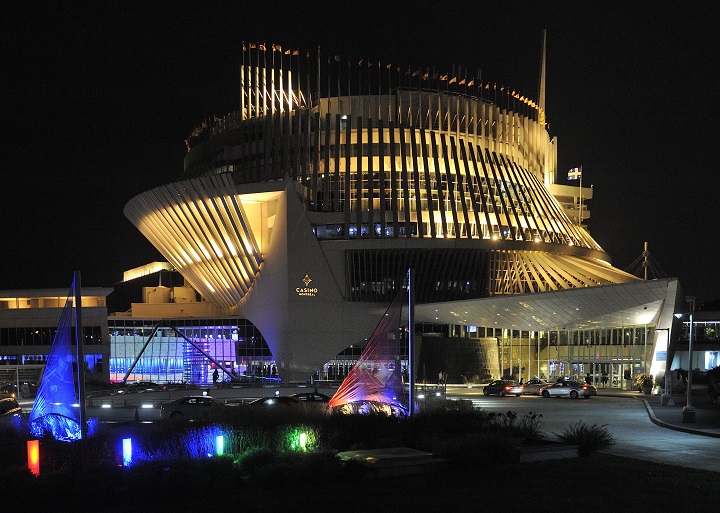The Quebec government says it will ban people convicted of a number of crimes, including money laundering and forgery, from stepping foot in government-owned casinos.

The province announced the new rule in a draft regulation published Wednesday in Quebec’s official Gazette.
People no longer welcome in casinos include those who have been convicted of or have pleaded guilty to crimes within the past five years that could affect the integrity of casinos or undermine public trust in them. Those crimes include money laundering, forgery and charging interest at a criminal rate, as well as violations of the Controlled Drugs and Substances act.
All legal casinos in the province, except for those in Indigenous communities, are owned by Loto-Québec, the province’s gaming authority.
“Loto-Quebec and the government are aiming for the highest standards of responsible gaming and financial integrity,” Claudia Loupret, a spokesperson for Quebec Finance Minister Eric Girard, said in a statement. “We have confidence in Loto-Québec to implement these new measures.”
The regulation, which comes into effect in about six weeks, follows a 2021 audit by Deloitte into the presence in casinos of members of organized criminal groups. Girard ordered the audit after media reports said organized crime members had allegedly received VIP treatment at the Casino de Montreal. The audit looked at money laundering, loansharking, Loto-Québec’s loyalty program and existing measures to ensure the security and independence of casino employees.
One of Deloitte’s recommendations was that Loto-Québec be given the power to ban people linked to criminality. Girard’s office did not respond to a question about why it took more than two years to introduce the regulation.
“This additional measure supports the many other security measures already in place to combat money laundering at our establishments and ensure that our casinos are safe entertainment venues,” Loto-Québec said in an unsigned statement.
Anna Sergi, a criminology professor at the University of Essex, in the United Kingdom, who has studied organized crime in Montreal, said similar rules exist in Australia, adding that criminals will find creative ways to get around them.
If organized criminal groups want to continue using casinos to launder money they will use third parties, representatives and figureheads to do so, she said.
In British Columbia, a 2022 public inquiry into money laundering found that hundreds of millions of dollars in illicit cash moved through the province’s casinos.
Headed by B.C. Supreme Court Justice Austin F. Cullen, the inquiry found that wealthy gamblers were given cash advances by criminal organizations — at times to circumvent Chinese currency export restrictions — to use in casinos. The gamblers would then cash-out and repay the advances, with the origin of the money now obscured, Cullen’s report said.
Patrice Poitevin, co-founder and executive director of the Canadian Centre of Excellence for Anti-Corruption, said that while organized criminal groups will be able to find ways around the regulation, Quebec’s new regulation is a step in the right direction.
“Anything that you put in place that will make life a little more miserable for organized crime to use casinos and other means to launder money is a good thing,” he said in an interview Thursday.
While organized criminals and other bad actors are extremely adaptable, Poitevin said, they are more likely to slip up when they’re forced to change their behaviour.
“If you make it more difficult, where they have to go through many, many hoops, mistakes happen and that’s where detection occurs and we’re more likely to be able to discover, investigate and prosecute,” he said.
Casinos are vulnerable to money laundering because of the nature of the business, Poitevin said. People can bring in large amounts of money, convert it to casino chips, then cash out. The money taken out of casinos can be described to authorities as gambling winnings, he added.
Poitevin said casino employees need to be trained to detect and report the red flags that are indicative of money laundering. But, he said, organized crime is already shifting its practices and using online gambling sites and crowdfunding platforms to launder money.














Comments